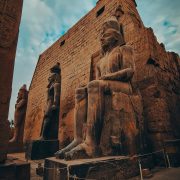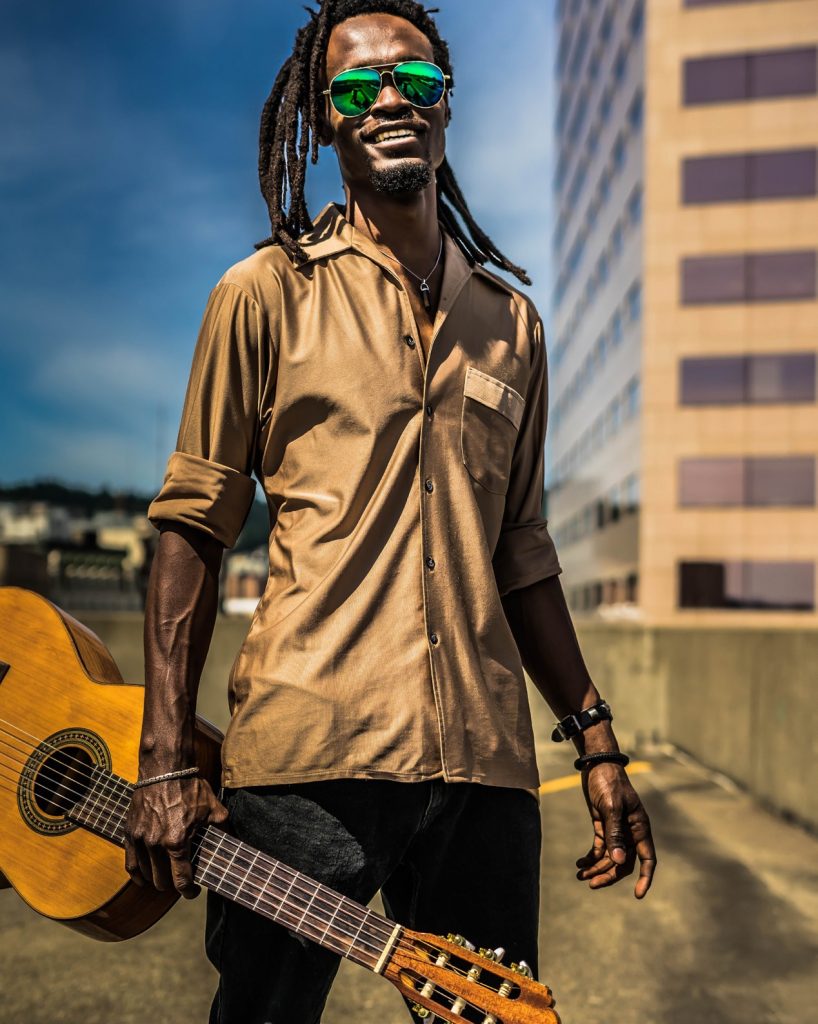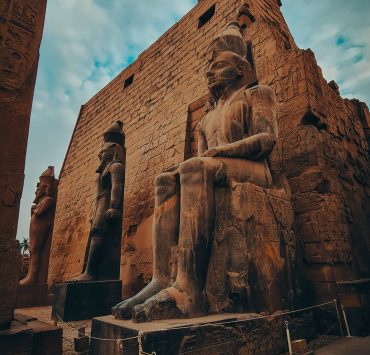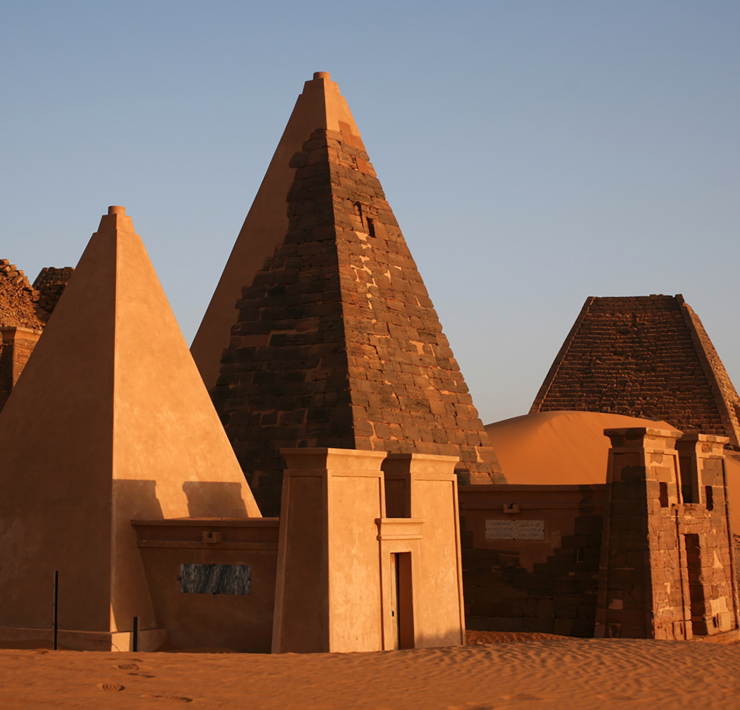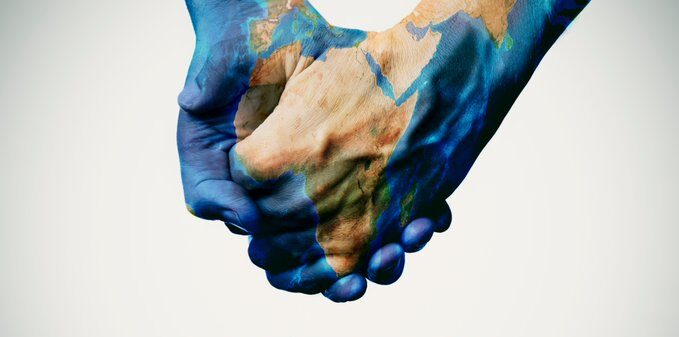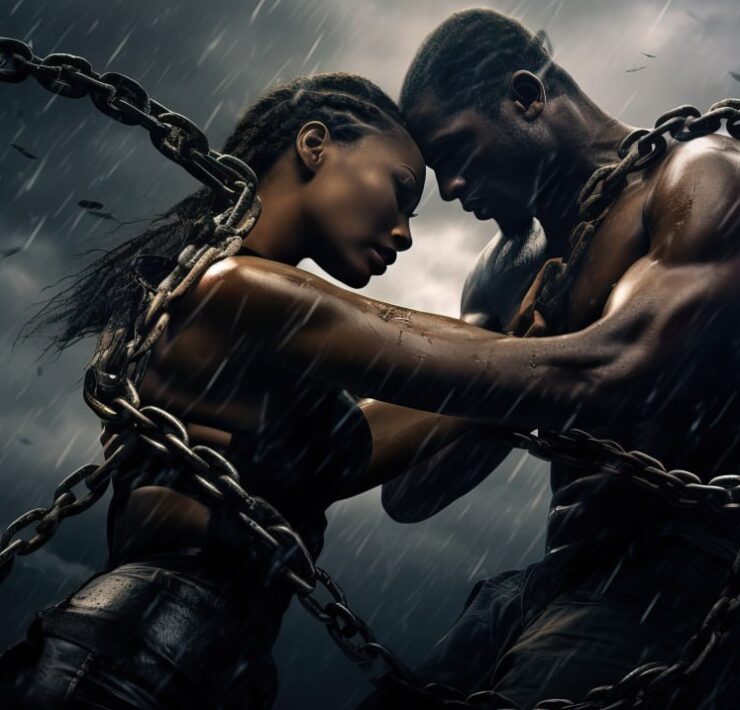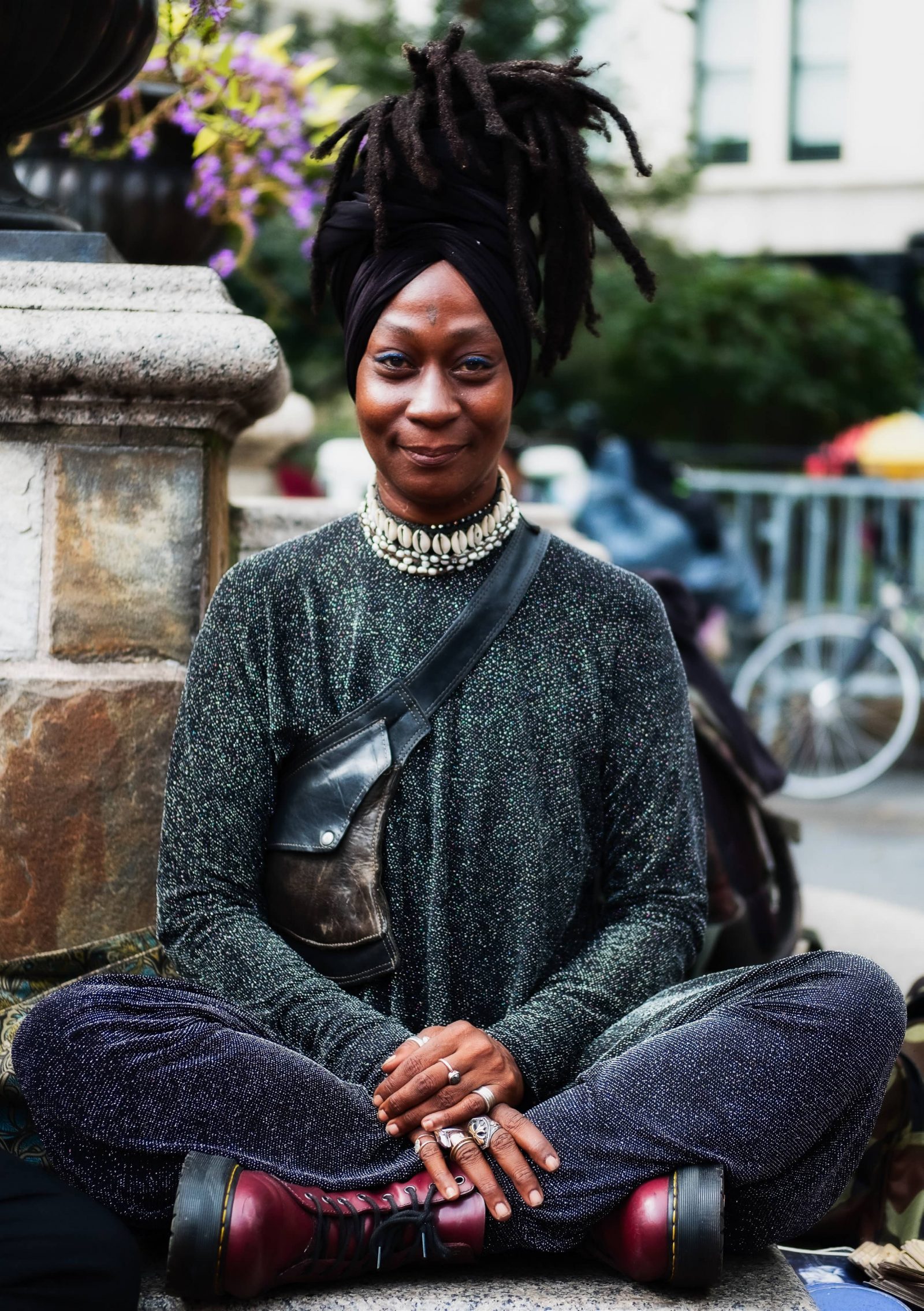
I am a lover of all the diverse african dances…
Read Next
Nearly every Rastafarian is a Pan-Africanist, while only a few Pan-Africanists are Rastafarians. Unity is a main factor for the successful development of the African continent. So how can we, as Pan-African people, move forward together as a united front?
No, my conclusion will not be that we all become Rastafarians. But I will explore the content of Rastafari, draw a connection between Rastafari and general Pan-Africanism as well as answer the Question: What can Pan-Africanist people learn from the Rastafari movement?
So, What is Rastafari?
Rastafari at its core is an anti-colonial African liberation movement with a spiritual element. The movement displays a powerful symbolism in which the essence of Rastafari is encoded.
Firstly, I will give an often overlooked historical context in which Rastafari came to be and secondly, I will try to break down the main symbols of the Rastafarian movement. A whole detailed analysis of the Rastafarian belief systems would take a much bigger space.
History
Rastafari emerged in the early 1930s in Jamaica. It was a time, when slavery had been abolished, but Jamaica was under colonial rule. After several rebellions in the 19th and 18th century, the colonial ruling class were so afraid of the uprising of Africans that they restricted Africans wherever they could. Most Africans in Jamaica lived in poverty and were denied their rights to participate in political activities, such as voting.
In the global context, the 1930s were a time when racial segregation in the USA and Southern Africa had been the norm, when Hitler seized power in Germany, when a civil war was fought in China, when just 50 years had passed since Brazil had abolished slavery, when just 70 years had passed since the last ship >which carried around 110 – 160 Africans destined to be enslaved< had landed in North America, when people in the Soviet Union had been starving, when the British had been stealing children from the native Australians, when Liberia had been under an imperialistic predominantly African American rule and when all African countries, except for Ethiopia, had been under colonial rule by the Europeans.
It was a time, when Marcus Garvey rallied millions of Africans in his Pan-African movement and Africans all over the world reclaimed the African continent as their home.
The so called “Ethiopianism”, as in the longing for returning to Africa and the hailing of Ethiopia (synonymous with all Africa) as the paradise was nothing new to the Africans, whose ancestors had been forcibly removed from the continent.
Furthermore, Africans in the diaspora had a long tradition of practicing African religions and forming African churches as a means of rebellion.
And it is that historical context in which in Ras Tafari Makonnen of Ethiopia was crowned Haile Selassie I, Kings of Kings, Conquering Lion of Judah, Elect of God.
This Coronation was a big global event. Royalties and leaders from numerous countries traveled to Ethiopia to witness the festivities on the 2nd November 1930. The Coronation got global attention and press coverage.
Marcus Garvey was reported to prophesy the Coronation of an African King, who shall be the redeemer of the African people. Later, he had published an article in the Jamaican Newspaper the Blackman, where he reported about the Coronation of Haile Selassie I and His Majesty’s willingness to welcome African people from the diaspora. Marcus Garvey further referred to a psalm in the bible, which said that Princes shall come out of Egypt and Ethiopia would stretch forth her hands unto God.
Given the historical and spiritual circumstances surrounding the world-celebrated coronation of an African king of Africa’s only autonomous state, it was not far-fetched that Haile Selassie I became a leading figure in the African society abroad.
Haile Selassie
It is important to note that the meaning of the person Haile Selassie I is not for all Rastafarians the same. While some Rastas see him as the second coming of Christ, some don’t even deal with ideas of God or Christ. Some see him as a spiritual teacher and others see him as a symbol to remind themselves of the godly within every human being. Rastafari is a broad spectrum and there are many different interpretations of Haile Selassie I.
The majority of Rastafarians value Haile Selassie`s speeches and his participation in the African liberation movements. Particularly his speech at the league of nations and the co-founding of the OAU are often mentioned.
Babylon and Zion
Rastafarians do agree on the definition of Babylon and its role in the life of Africans. Babylon is the colonial or white supremacist society and the political system of the west. It constantly disadvantages Africans and it does also affect the reasoning of Africans in a detrimental way. Babylon is a construct, that must be changed to the benefit of the people of Africa.
Opposed to the negativity of Babylon is the positivity of Zion. Zion is the promised land. Zion is Africa. While the repatriation to Africa was a main goal for Rastafarians of the diaspora in early days, the physical repatriation is not the main focus of all Rastafarians anymore. Being in Africa is also seen as a mindset.
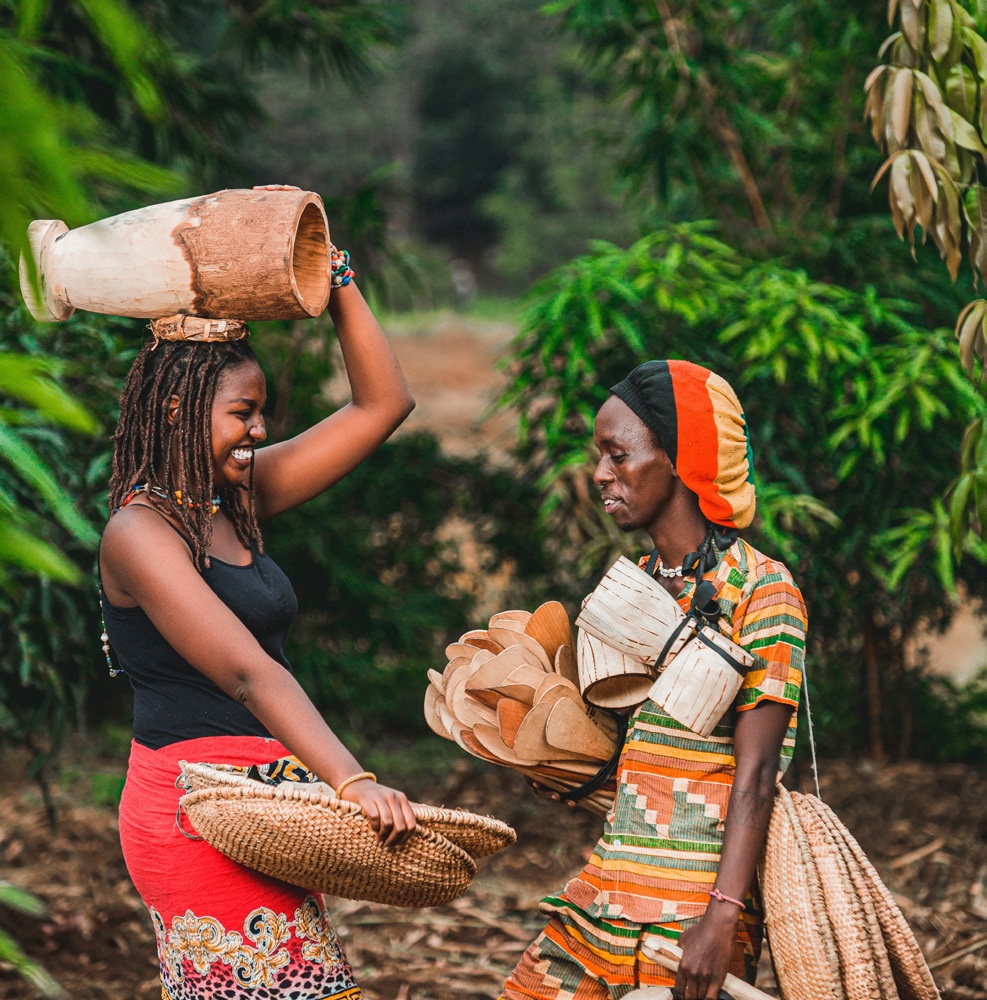 PIN IT
PIN ITLanguage
In the wake of the anti-colonial spirit of the Rastafarian movement, Rastas developed their own expressions to challenge the European language, English. Fullticipate instead of participate, overstand instead of understand or downpression instead of oppression, are such expressions. The use of I and I instead of me and Ital livity and have more complex concepts behind the expression.
I and I
Rastafarians do not like to use the word ‘me’ since it carries an egocentric vibe. I and I as a concept describes the oneness of all things. I and I means we are one people. I and I does refer to the divinity within oneself. I and I is the oneness of the physical and spiritual self.
Ital livity
Rastafari is a lifestyle and an everyday choice. Part of this lifestyle is a healthy nutrition. It is safe to say that all Rastafarians agree that a healthy diet is crucial for the wellbeing of oneself. When it comes to the question of what a healthy diet looks like, opinions differ. Some Rastafarians are strictly vegan, some are vegetarian, some are pescetarian and others eat chicken occasionally. Refraining from excessive salt consumption, alcohol consumption or the use of hard drugs is commonsense within the community. Although the stereotypical Rastafarian is seen as someone who smokes Marijuana day in and out, that is not always the case. There are numerous Rastafarians who do not smoke marijuana or practice regular abstinence for a certain period of time. Rastafarians value the healing properties of the herb and use it in smoothies, in cooked food, in teas or as oil. The smoking of marijuana is commonly a ritual activity, which can happen in community and can be accompanied by reasoning.
Reasoning
Reasoning or grounding is a process in which different Rastafarians come together and discuss different topics. It’s a space where everyone can share their opinion on the matters at hand. Reasoning can happen at any time in any place and can go on for hours.
Nyabinghi drumming and reggae music
Nyabinghi drumming is an inherently Rastafarian-African practice. It can be accompanied by chanting and dancing and it is practiced especially on Rastafarian holy days or assemblies. But the drums can also be played in an informal setting.
The drumming itself was brought to Jamaica by formerly enslaved Africans. The rhythms are reported to have derived from Congo and West Africa. The colonial masters allowed drums to be played in the plantation fields, because they noticed that the drumming made it possible for Africans to keep up a certain pace. The tradition of drumming survived after the abolition of slavery and made its way into the Rastafarian movement.
“Nyabinghi” is the Name of an East African Queen, who became a symbol of anti-colonial resistance. These rhythms gave the basis for ska, rocksteady and reggae.
Music plays an essential role for Rastafarians. Since music is used as weapon against Babylon and as a tool for education, Rastafarian lyrics are mostly conscious and aim either at critiquing the system or educating their fellow Africans about their Africanness.
Defying western beauty standards
Locs are a typical Rastafarian hairstyle, which represent rebellion and strength. Even though not all Rastafarians carry Locs, Rastafari stands against the western beauty standards. Thus, Rastafarians promote African fabrics, natural hairstyles and strongly advocate against bleaching.
Connection between Rastafari and general Pan-Africanism
After breaking down a few essential points about Rastafari, I will now draw a connection between Rastafari and Pan-Africanism.
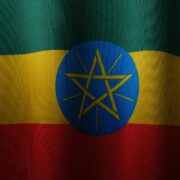 PIN IT
PIN ITAfter the Berlin conference in 1884/85, when the official colonization of the African continent had been sealed, the Pan-African movement started to grow. Its goal was – and probably still is – the decolonization of the African continent. The first Pan-African congress happened in 1900 and was organized by the Trinidadian Henry Sylvester Williams. Later, Marcus Garvey led the big Pan-African movement called the Universal Negro Improvement Association and African Communities League (UNIA- ACL). Marcus Garvey rallied millions of people of African descent behind him, with the goal of liberation and reclaiming being African as something positive and the African continent as a place to be. Marcus Garvey played – and still plays – an important role for Rastafarians and Pan-Africanists alike.
Both Rastafarians and Pan-Africanists share a great love for the African people and their continent. Developing a positive African image is central to the overall picture. In this context, a critical examination of colonial and neocolonial structures is practiced. An understanding of the importance of a self-sustaining African continent as well as the understanding of the importance of an African centered education are encouraged. Furthermore, it is a common belief that the African continent is the future of the people of Africa.
And most importantly, everyone wants unity among the African people of the continent and of the diaspora.
So what is the point of all gathered information above?
As I just said: Everyone wants unity among African people. In order to unite, we (Africans/people of African descent) need to know who is sharing our main goals.
Through the lens of the Western world, we can easily get a distorted picture of Pan-Africanism and all of its diverse manifestations. This doesn’t mean that everyone has to become Rastafari, but it does mean that we Africans have to value each other because of our different perspectives. One of our main goals should be to tell African stories from an African perspective and make a consistent effort to learn from each other without holding on to prejudice.
And what can we learn from the Rastafarian movement?
1. Unity despite diversity
Pan-Africanism and the development of an African consciousness are on a steady rise. If all Pan-Africanists can agree on the greatness of Africa and her People, it should be possible to appear as a united front to the global society. That does not mean – I cannot stress it enough – that all Africans and people of African descent have to become the same and that everyone has to give up his or her unique culture in order to be a part of a Pan-Africanist movement. It does mean that, we have to love each other no matter our cultures and spiritual and religious beliefs.
(And yes, sure, everything that promotes violence should not be tolerated.)
2. Having Conversations
The same as reasoning is a common Rastafarian practice along different and like-minded people, having more conversations and discussions should be practiced by all different groups of Africans. It’s okay that we do not always share the same beliefs, but when it is about Africa and how to help her striving, we should make an effort and speak with each other. It is possible to have different opinions on one topic and come to an agreement on another topic. Conversations can also help us to understand each other better. Even though we will not agree, but at least we can broaden our horizons and develop more respect for each other. Learning from other Africans and their experiences is a form of education which will permit us to create solutions.
3. Music and Education
I believe that, if more Pan-African minded people would promote their thoughts and an African centered education through music, some Africans who didn’t even know that they are Pan-African would discover the beauty and importance of Pan-Africanism. Yes, sometimes we all do need music for pure physical enjoyment, but we also do need a stimulation of our brains. Imagine if singing along to your favorite song could mean enjoying yourself while learning something.
In promoting educational music, we are walking in our ancestor’s footsteps. Music brings people together. And African Music has been a means to tell stories, to celebrate life, to educate the children and for resistance since the early days.
Nonetheless, non-musical formal education is a main factor to the advancement of the African continent. For example, some Rastafarian communities set up their own schools, because they do not trust the western educational system. And as I said in my Article “The History and Development of Education in Afrika” it is about time, that Africans create an African centered school system.
Africa for the Africans at home and abroad
Africans have to unite across the boundaries of spiritual or religious belief systems. Everyone should be able to believe in what feels right for them. And nobody should be facing discrimination because of their beliefs or the outer appearance that comes with these beliefs. Since Africa is the cradle of humanity, Africa displays a diversity that is rarely seen in any other place. And yet, the shared history of colonialism, enslavement and discrimination in a white supremacist society, unites us. For the wellbeing of the African continent it’s worth coming together and finding African solutions for African problems. Africa is for all the Africans at home and abroad.
Subscribe now for updates from Msingi Afrika Magazine!
Receive notifications about new issues, products and offers.
What's Your Reaction?
 PIN IT
PIN ITI am a lover of all the diverse african dances and music. I am a social worker. I am in search of truth I am of German-Senegalese origin. I am always learning. I want to share and exchange knowledge. I believe that education is the key. I believe in the power of african unity. I believe that Africa is the future and the place to be.








